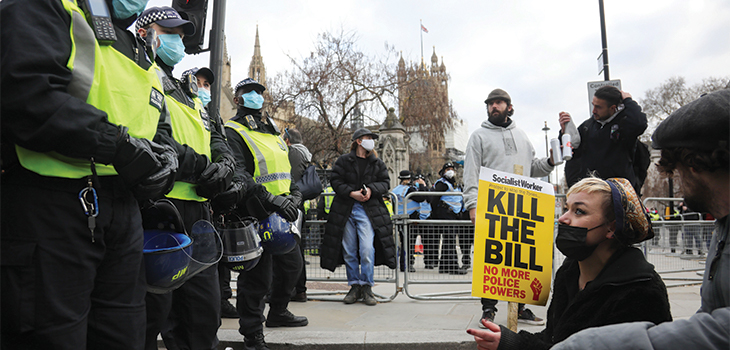
- Public processions and public assemblies.
- The power to impose conditions.
- The subject matter of conditions.
The Police, Crime, Sentencing and Courts Bill (the PCSC Bill) received its First Reading in the House of Commons on 9 March 2021. At the time of writing, it has progressed to the Committee Stage. The Bill is a substantial piece of legislation which is concerned with a number of aspects of criminal law and the criminal justice system (see Michael Zander QC’s series ‘A Bill that has a bit of everything...’: Part 1, NLJ 26 March 2021, p9; Part 2, NLJ 2 & 9 April 2021, p17; and Part 3, NLJ 7 May 2021, p15). For present purposes, the focus will be on Pt 3 of the PCSC Bill relating to ‘Public Order’, in particular the clauses which are concerned with ‘public processions’ and ‘public assemblies’









